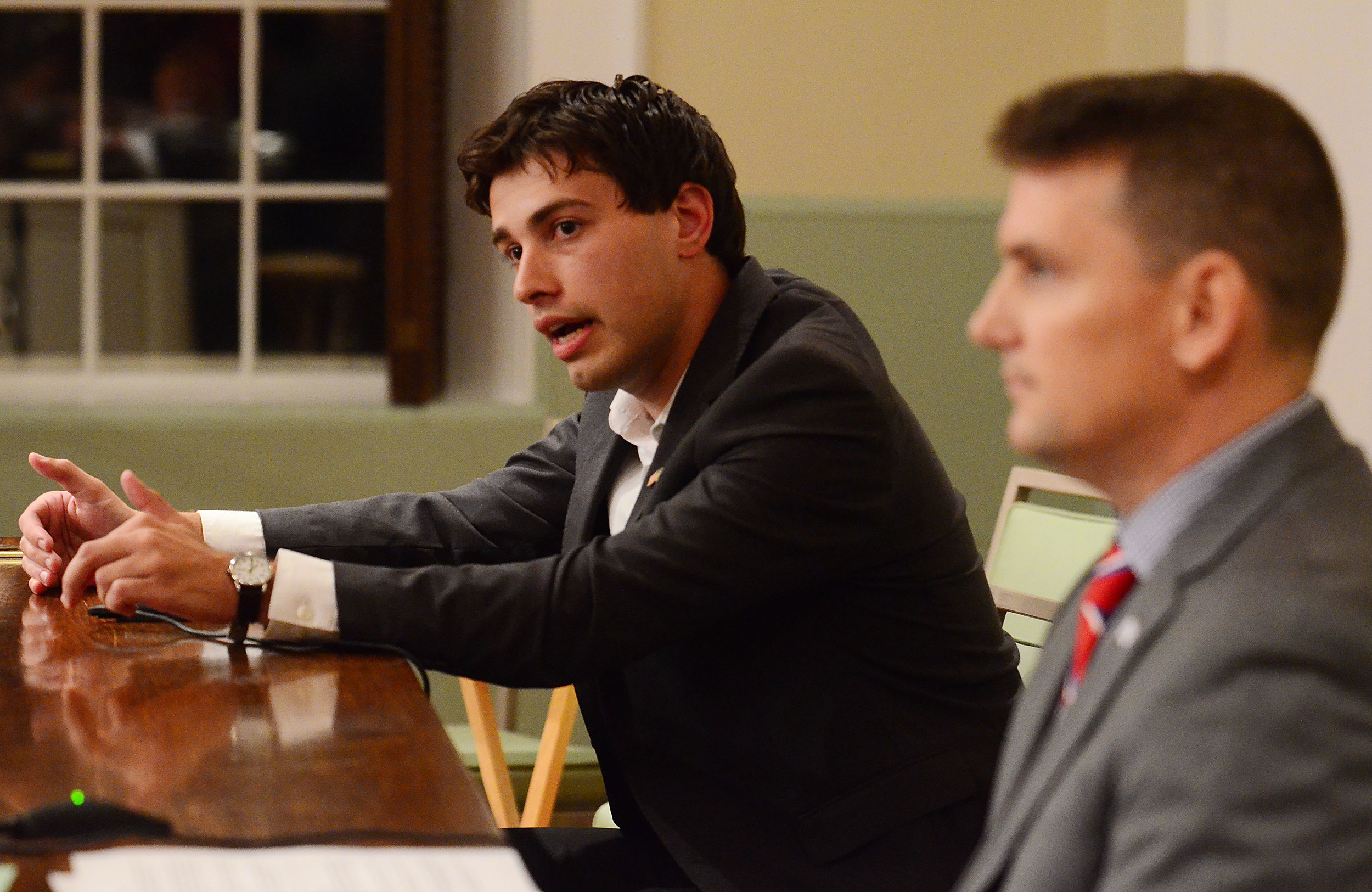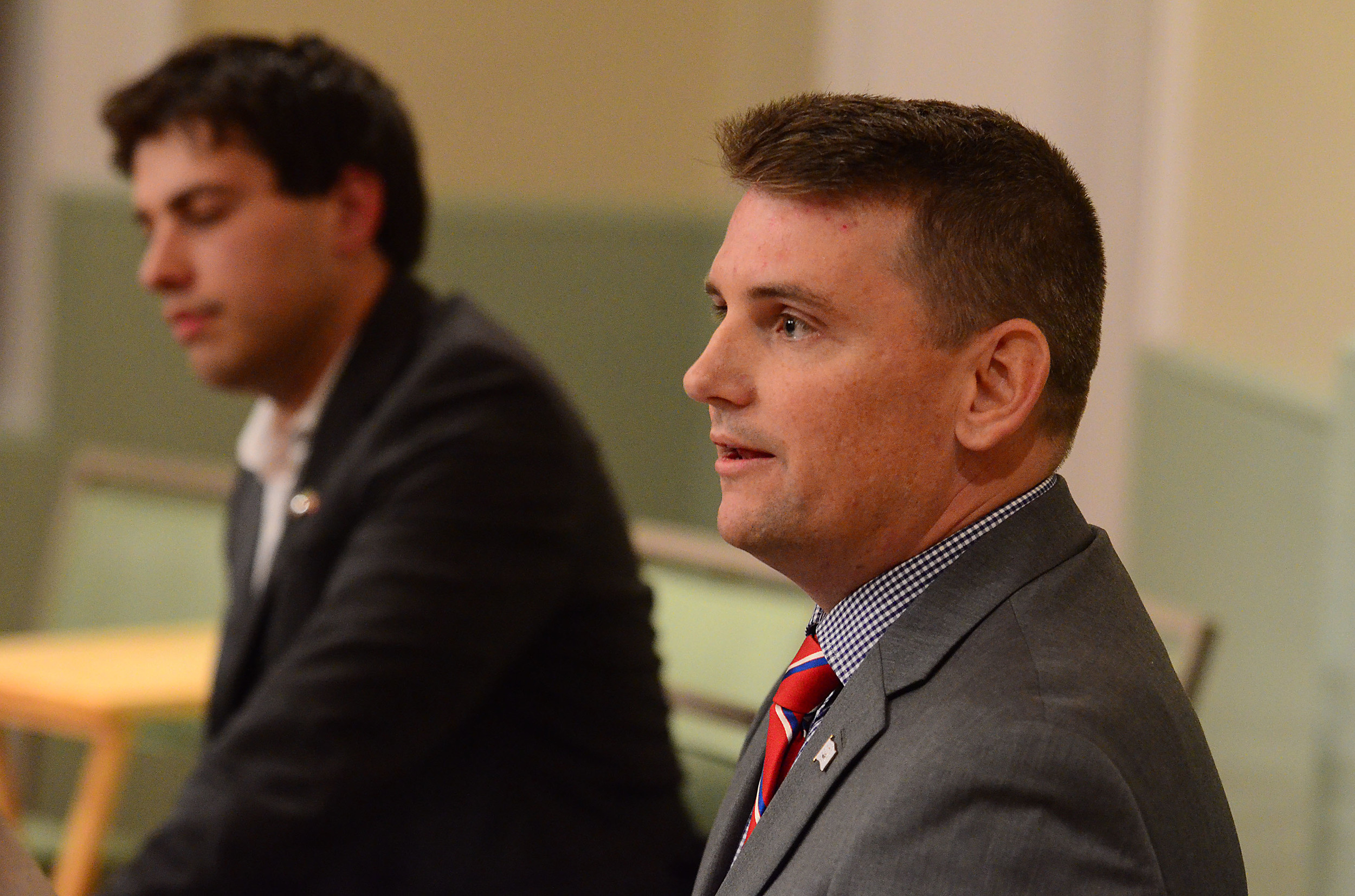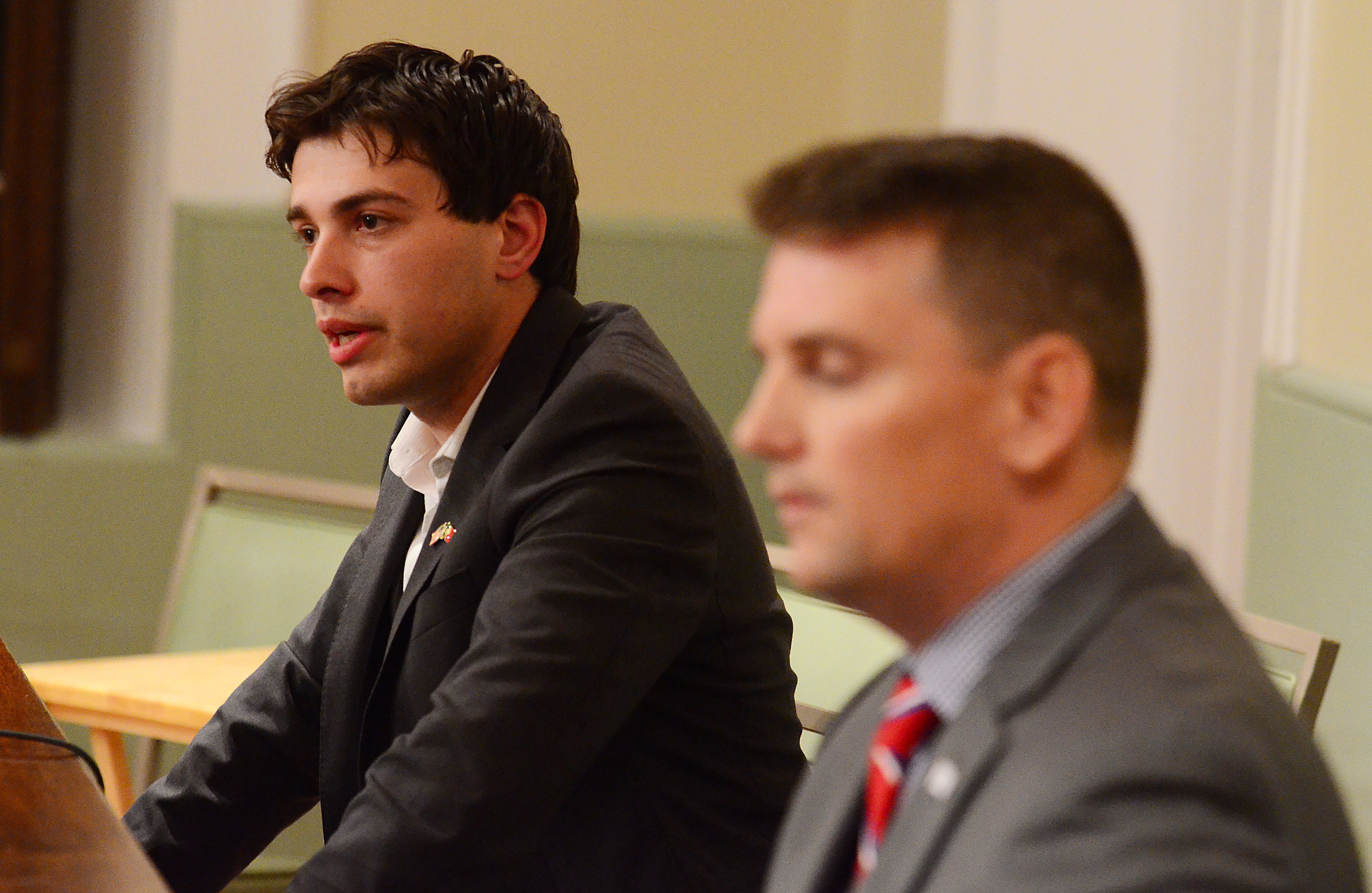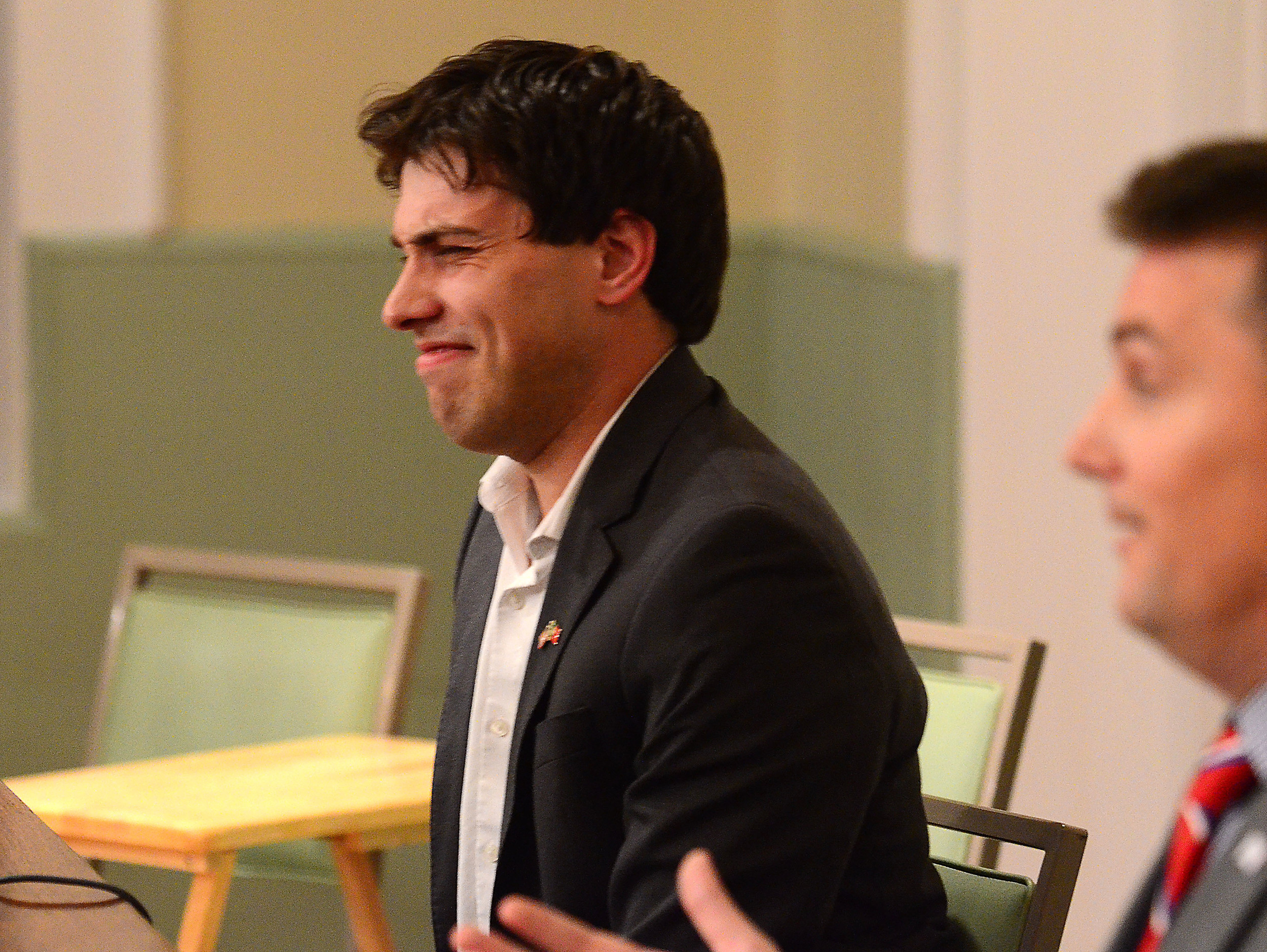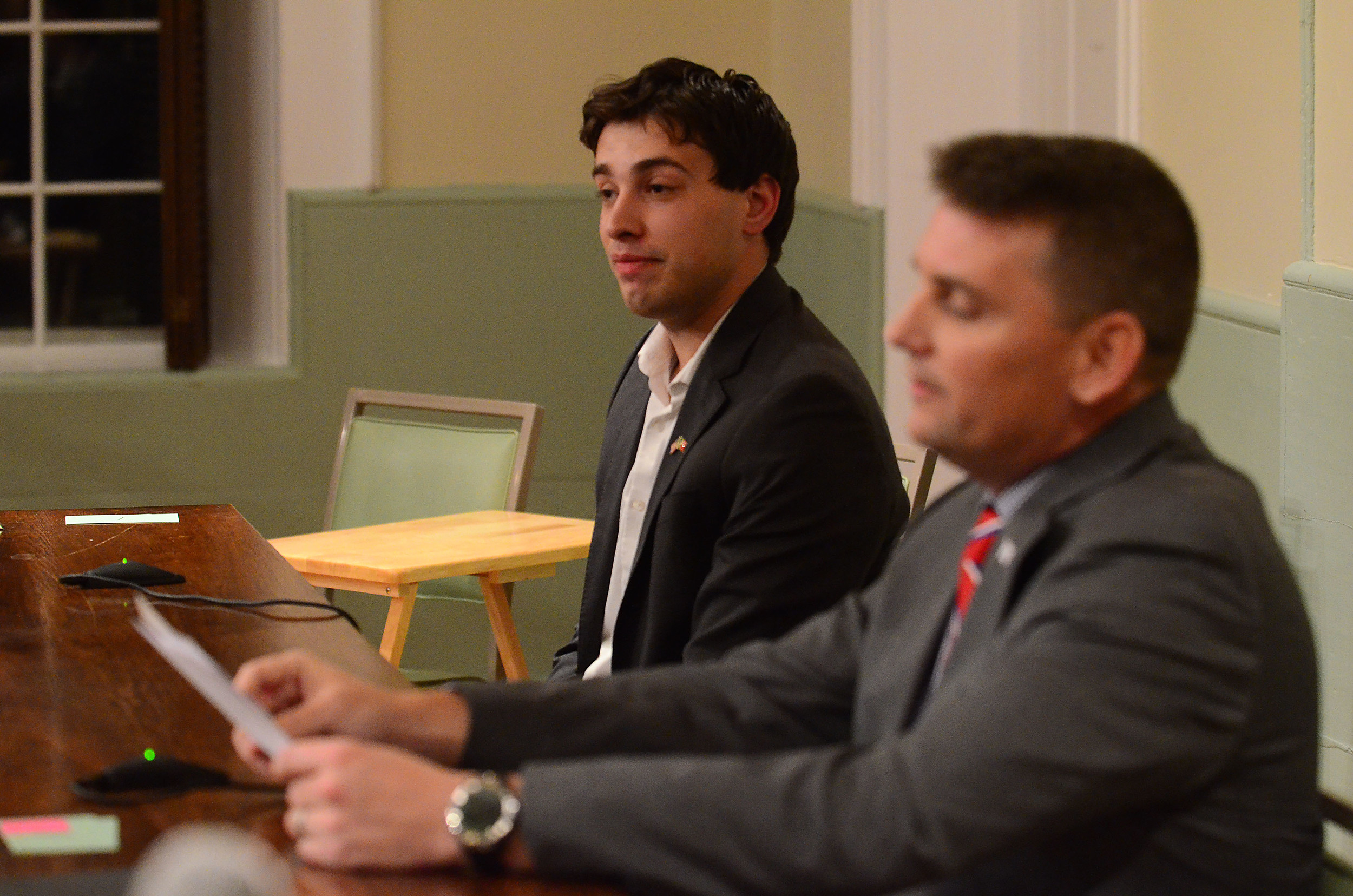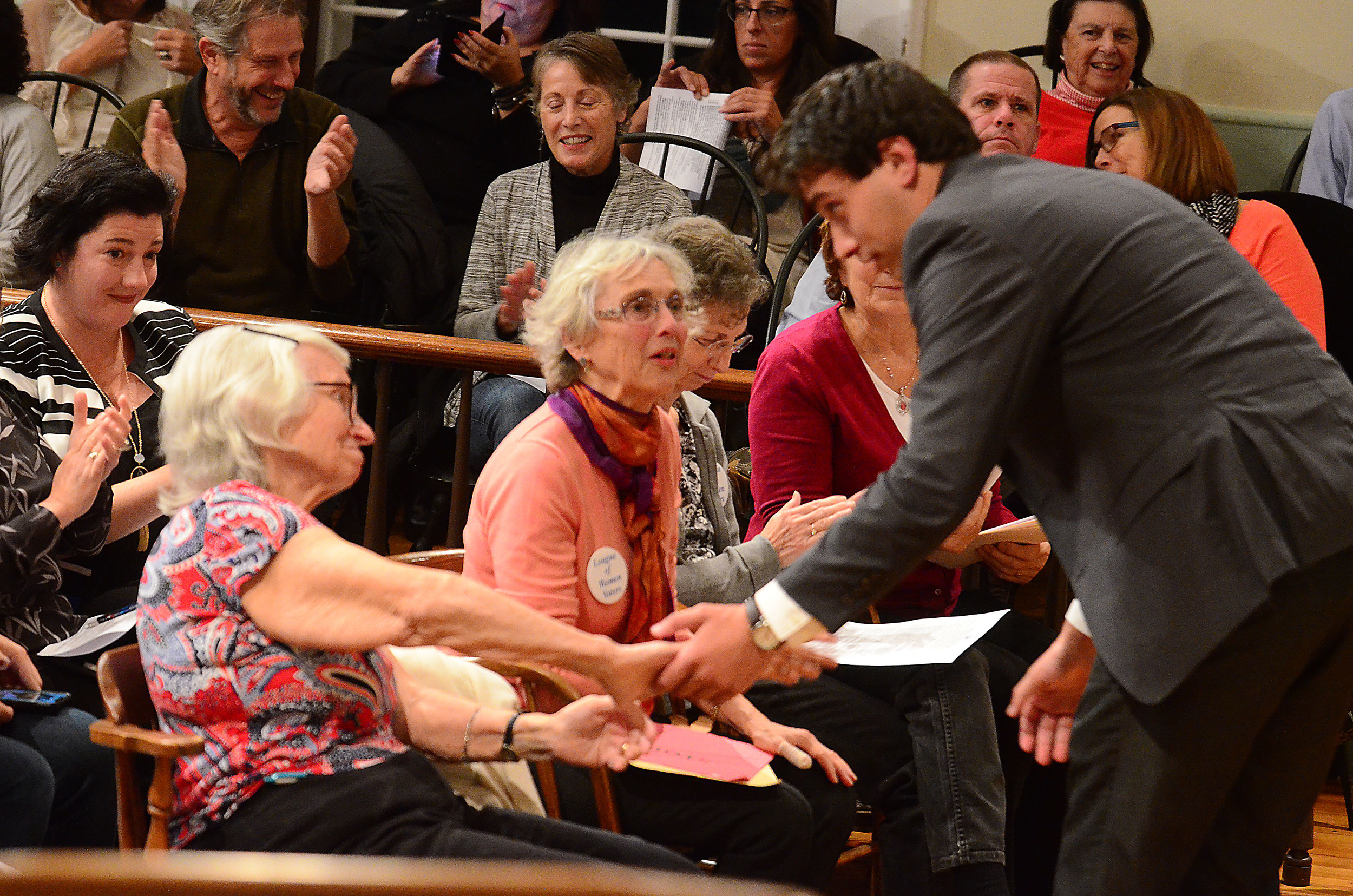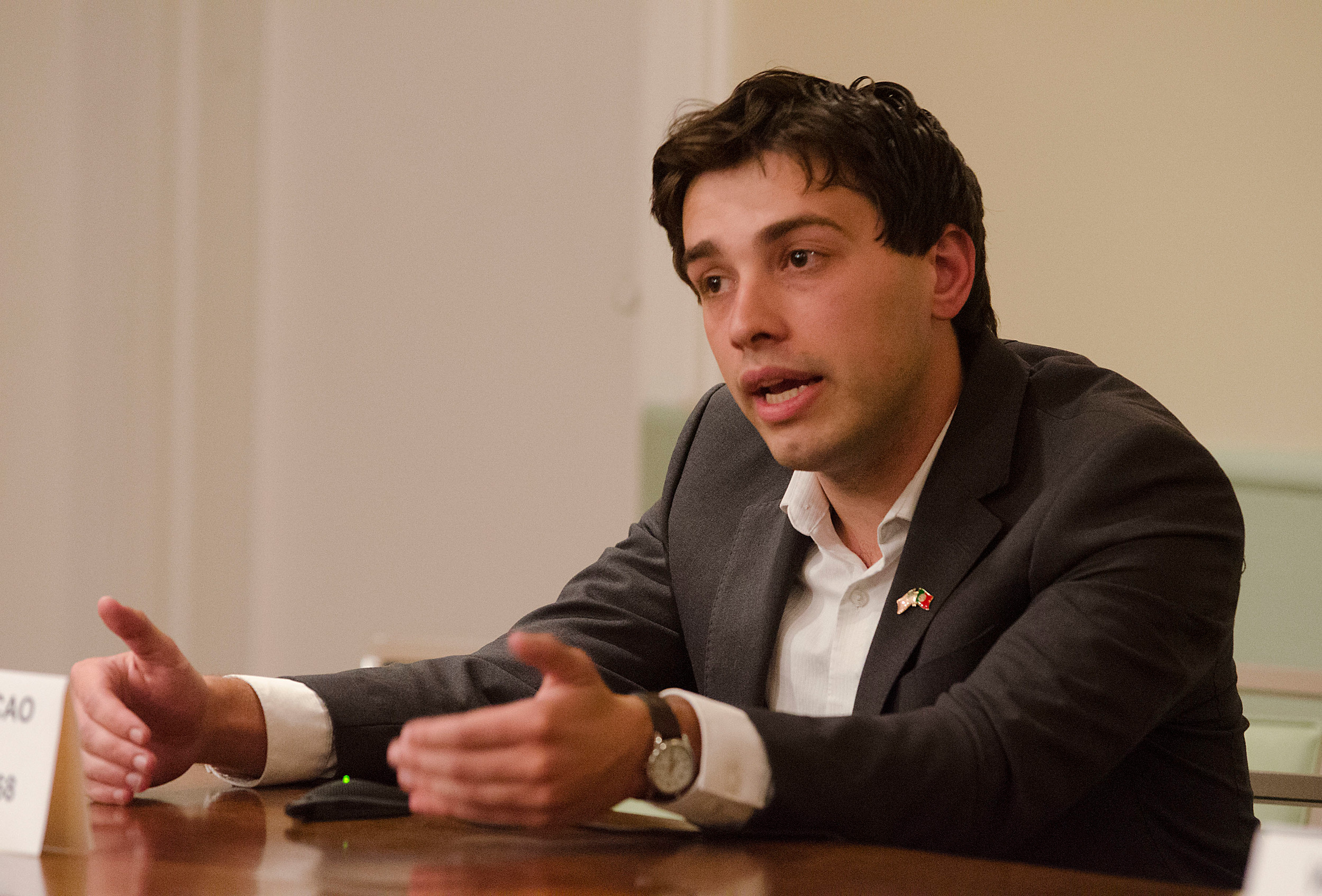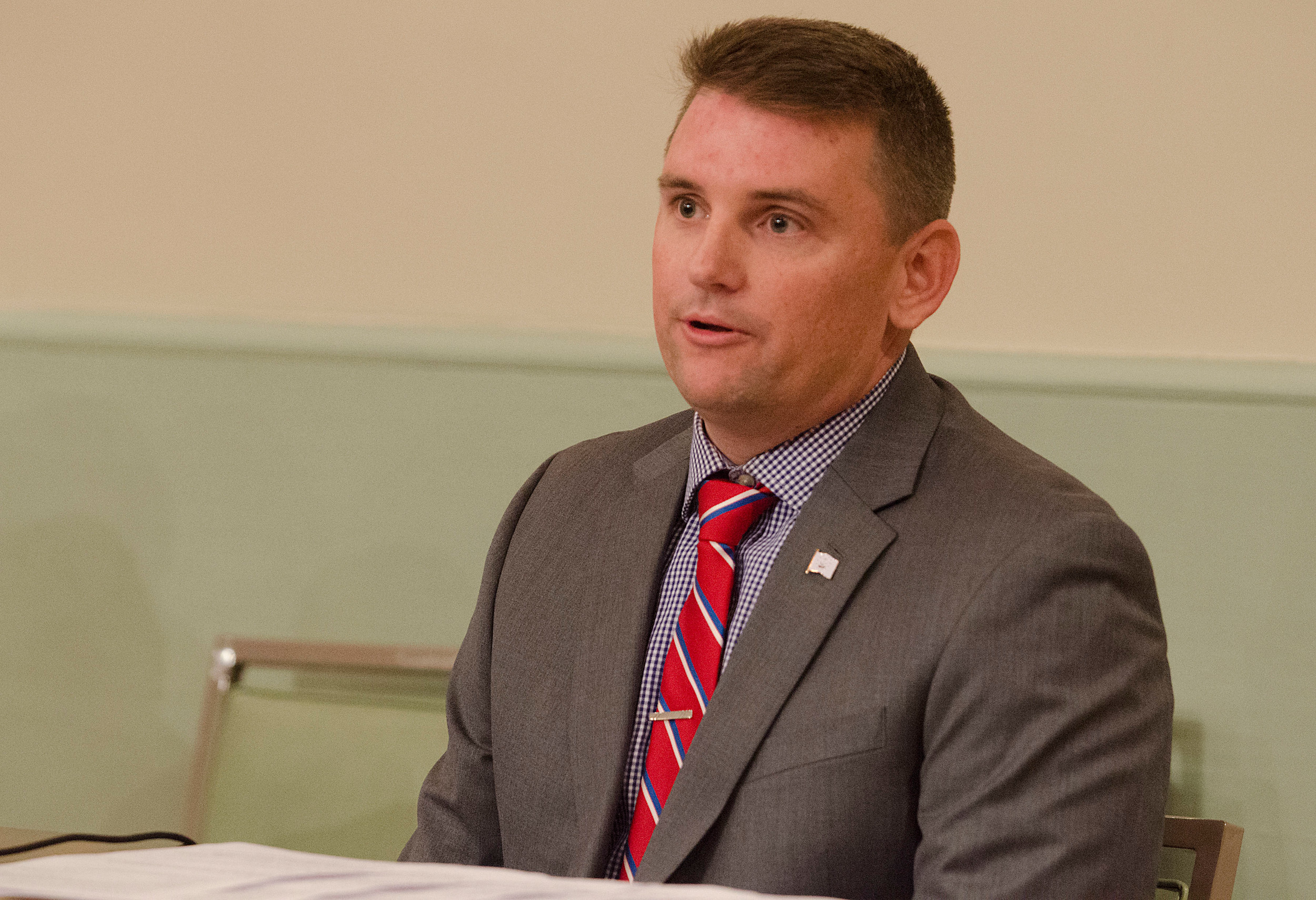- SATURDAY, APRIL 20, 2024
Ascencao and Hunt square off in second District 68 debate
Ascencao and Hunt agree on legalizing marijuana, but not much else
Bristol Democrat Laufton Ascencao wasted no time getting to the heart of questions about his livelihood raised last week by Libertarian William Hunt of Warren, his opponent for the House of …
This item is available in full to subscribers.
Please log in to continue |
Register to post eventsIf you'd like to post an event to our calendar, you can create a free account by clicking here. Note that free accounts do not have access to our subscriber-only content. |
Day pass subscribers
Are you a day pass subscriber who needs to log in? Click here to continue.
Ascencao and Hunt square off in second District 68 debate
Ascencao and Hunt agree on legalizing marijuana, but not much else
Bristol Democrat Laufton Ascencao wasted no time getting to the heart of questions about his livelihood raised last week by Libertarian William Hunt of Warren, his opponent for the House of Representatives District 68 seat, at the second of two forums between the two held Tuesday night at the Bristol State House.
“I suspect we’re going spend most of this night debating whether I hate puppies and love the Yankees,” said Mr. Ascencao, who was accused by Mr. Hunt last week of misrepresenting whether he derives a portion of his income from diving for quahogs, and whether he does it legally.
“Last week at the (first) forum there was some confusion about diving,” he said. “The first accusation made against me was that I dive illegally. I do not. The second accusation is that I don’t ever dive, which seemed a little silly.”
Mr. Ascencao explained that for years he has dived for quahogs with family members. Though he does not hold a commercial license, he said he has often helped licensed family members with their catch, and has been paid by them for his help. It’s all totally legal, he said, and state ethics laws do not require that he report income derived in that manner.
“It is all above board,” he said. “I am sorry to say that Watergate version two does not quite live up to the hype.”
The truth, he said, is that Mr. Hunt fully supports the Libertarian platform but knows he can’t defend his ideas to his constituents, who hold more liberal views:
“That (Libertarian) platform includes abolishing Social Security,” Mr. Ascencao said. “It includes eliminating the minimum wage. It includes the fact that government should play no role in protecting our environment. It says that there’s no such thing as a reasonable restriction on firearms. And it even says that it should be legal for individuals to discriminate based on the color of your skin or who you love.
“Now, I think he’s not bringing it up because he understands that the people of Bristol and Warren don’t support these policies. If he thought they did, he would actually get up and defend his ideas.”
Responding to Mr. Ascencao’s opening statement, Mr. Hunt said he has made an issue out of Mr. Ascencao’s diving because he believes his alleged misrepresentation of his livelihood does a disservice to those who work hard earning their living on the water.
As a former worker in the shellfishing industry, he suggested, the misrepresentations are a slap in the face.
“Through (past work) experience, I gained tremendous respect and admiration for the hard-working men and women in the fishing industry,” he said. “For my opponent to characterize himself as a quahogger and camouflage the fact that he derives 100 percent of his income from special interest groups is misleading and deregates from the hard-working fishing industry, as well as the candidates of District 68.”
From that opener, the two answered a series of questions posed by audience members through moderator Scott Pickering of East Bay Newspapers. The differences were clear:
On why each thinks he is qualified to be a state representative:
Mr. Ascencao went first, explaining that his work with groups that protect the environment and advocate for renewable energy sources has made him keenly aware of the issues facing Rhode Islanders, and what matters in the Ocean State.
“The work I do every single day is alongside environmental organizations and conservation organizations,” he said, adding that his work has brought him to the state house on multiple occasions, where he and the organizations he works with have sought to establish legislation that protects the environment.
“I’ve been fortunate enough to fight for several bills” including those that deal with energy issues, domestic violence and other issues,” he said. “I’ve fought for these bills …despite opposition from the leadership of that chamber. And that’s what I’m offering as a state representative. I’ll keep working, keep organizing and keep fighting to make sure our values” are heard on Smith Hill.
Mr. Hunt, who works in the insurance industry and graduated from college in 2006, serves on the Warren Harbor Commission and is a representative to the State Coastal Resources Management Council.
“Volunteerism aside, an entire decade of real world work and life experience makes me the more qualified candidate.”
On legalizing recreational marijuana:
Not legalizing marijuana is “a perfect example of a missed opportunity by our state leaders,” Mr. Hunt said.
“While we sit on our hands, cannabis is being legalized across the country.” Meanwhile, Massachusetts is gaining income, tax dollars and industry.
“All this activity is going on just five miles over the border in Massachusetts.
If recreational marijuana became legal here, he said, there would be a tremendous positive impact that could see vacant mills repurposed, jobs for electricians and HVAC workers, manufacturing and retail jobs, and the like.
“Don’t we have a plan in Rhode Island?”
“Legalize it,” Mr. Ascencao added.
“I’ll be honest and say I don’t think marijuana is that scary or horrible. Either we reap the benefits and help our state, or we let Massachusetts reap all the benefits.”
On what role charter schools and vouchers should play in state education:
There’s nothing wrong with charter schools if they’re not draining money out of” public education, Mr. Ascencao said. “But public education is essential. It is the only system that is available to every kid. Charter schools and vouchers don’t offer solutions for every child. Our public schools must.”
“The best way to deal with school funding problems is through a voucher system,” Mr. Hunt said. “It makes the money follow the student instead of going directly to the school districts. Our school funding system is funding. We need to regionalize and the best way to regionalize is through a voucher system.”
On combating the drug overdose issue:
“We need to treat it more as a health issue and not a criminal issue,” Mr. Hunt said. “When you treat it as a criminal issue, people get affected in ways that aren’t intended.”
Sending drug offenders to prison and then back when they’re paroled and relapse, he said, “isn’t doing any good for anyone. It costs $55,000 a year to keep these non-violent offenders at the ACI.”
“I’d use the Portuguese model,” Mr. Ascencao said. “Let’s stop treating people who are suffering as criminals. Let’s build many more treatment centers and really, let’s just invest in people instead of punishing people. We’ve tried that for close to 70 years and it’s created problem after problem after problem.”
How to address corruption at the Statehouse:
Mr. Ascencao said Rhode Island needs term limits, the line item veto, lobbyist contribution reform, campaign finance reform, “and on top of that we also need a cultural change.”
“That failure in leadership is why I’m not voting for Nick Mattielo as Speaker. I will push for changes … so not all the power lies in the hands of one man.”
Mr. Hunt spoke of the access lobbyists for corporate interests get, using Walmart as an example. Reducing the ability for large corporations and special interests to get special access is a big first step in reducing corruption, he said.
On what role state government should play in protecting natural resources:
As a member of the Warren Harbor Commission and CRMC representative, Mr. Hunt said, he fought to help preserve public access to the water by updating and researching the public access Rights of Way to the water in Warren.
“We worked to make sure that we have the open access to fisheries that our forefathers intended in this state,” he said. “There’s a need for some government (regulation) to protect the public good,” though he said personal property rights should be protected, and he believes in the right of those working in various industries, including the water, to self-regulate themselves for the better good.
“I think expecting private organizations to self-regulate is ridiculous,” Mr. Ascencao replied. “You need an active and functioning regulatory system.”
Other items that may interest you

